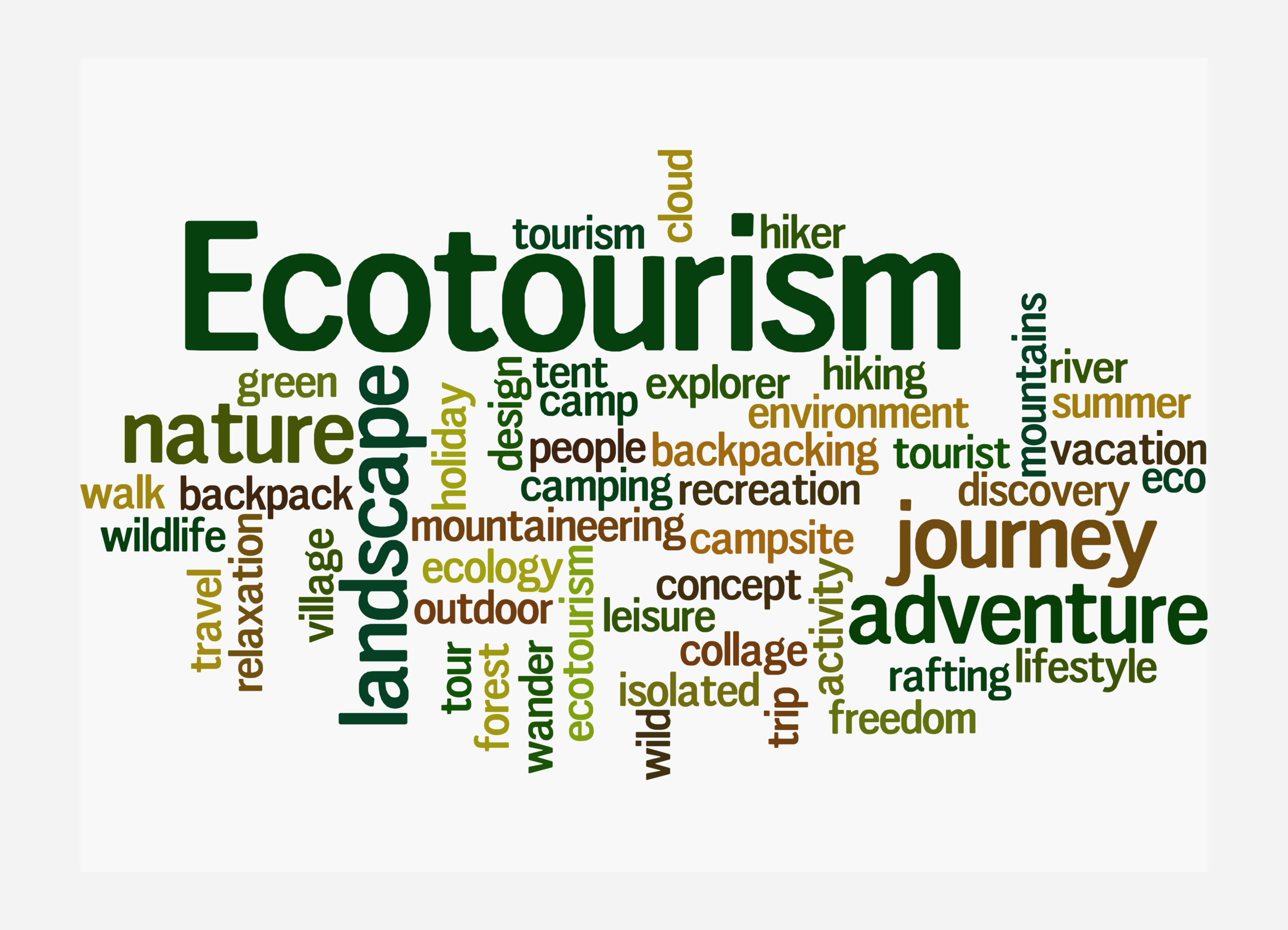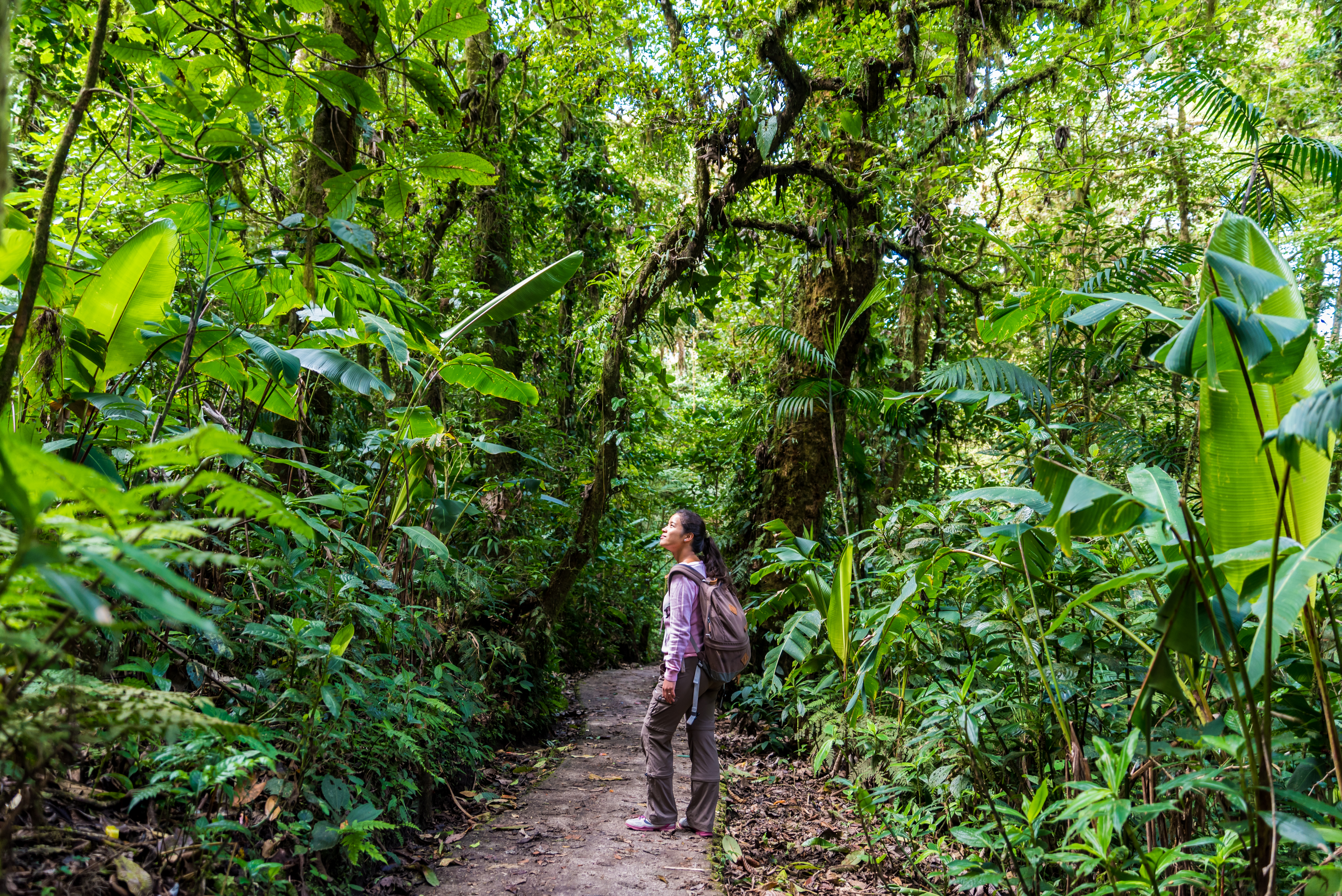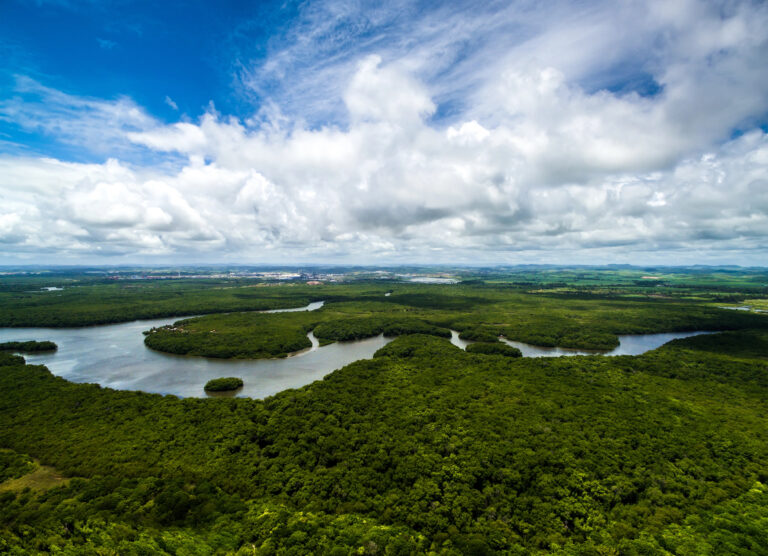
Disclosure: Some of the links in this post are affiliate links, meaning we may earn a small commission if you make a purchase through them.
Have you ever considered the environmental impact of our travel habits? Surprisingly, the travel industry contributes 8% to global carbon emissions. Enter ecotourism, which is often overshadowed in mainstream travel discussions but serves as a significant solution. In this article, let’s review the intricate realm of ecotourism—a travel movement with a purpose. We’ll explore its crucial role in conserving natural environments and bolstering local economies. Contrary to photo ops, ecotourism is about making a positive difference on our planet. For further ecotourism facts and the source of this revealing statistic, refer to the study mentioned in this article from the World Economic Forum.
What is Ecotourism?
Ecotourism is a type of tourism aimed at conserving the natural environment and improving the well-being of local people. It focuses on visiting natural areas to learn, study, or participate in activities that don’t contribute to harm while promoting environmental awareness. Tours and accommodations are designed to be sustainable, supporting conservation efforts and local communities’ economic development. Ecotourism promotes conservation, education, environmental awareness, and respect for different cultures. Travelers engage in ecotourism by choosing destinations where their visit can positively impact the environment and the lives of local residents. This form of tourism involves various forms, such as agritourism, culturally sensitive travel, eco trekking, eco lodging, activity-based ecotourism, and community development trips. The goal is to minimize negative impacts on nature while enhancing cultural understanding and promoting sustainability in international travel.
Benefits of Ecotourism
One very important ecotourism fact to know is that it combats climate change and supports local communities. It also preserves natural environments and promotes cultural heritage.
Combats climate change
Ecotourism plays a significant role in fighting against climate change by promoting sustainable travel practices. It encourages tourists to choose options with lesser environmental impact, such as using public transport instead of private vehicles and visiting natural places without harming them. This approach helps reduce carbon emissions, one of the main contributors to global warming. By prioritizing activities that support conservation projects and wildlife refuges, ecotourism ensures the protection of natural habitats, which are crucial for absorbing carbon dioxide from the atmosphere. Moreover, this form of tourism supports local economies by creating jobs that rely on the preservation rather than exploitation of natural resources. It leads travelers to adopt behaviors that contribute positively to environmental conservation. Such sustainable behaviors aid significantly in combating climate change by fostering a cycle where both locals and visitors work towards maintaining the health of our planet’s ecosystems. Through responsible travel choices encouraged by ecotourism initiatives, we see a direct positive impact on reducing human environmental impact while ensuring economic benefits for local communities involved in conserving their natural surroundings.
Supports local communities
Moving beyond its environmental benefits, ecotourism also plays a crucial role in enhancing the well-being of local people. Attracting visitors interested in nature-based experiences creates employment opportunities and provides a substantial economic boost to the community. Local businesses thrive as tourists frequent local markets and restaurants and use other services, injecting much-needed funds directly into the economy. Ecotourism brings financial benefits for sustainable development in communities around popular ecotourism destinations. Community-based tourism allows locals to showcase their natural attractions and cultural heritage while retaining control over tourism activities. This empowers local populations by allowing them to benefit financially from preserving their environment and culture, making ecotourism a vital tool for promoting environmental sustainability and social equity.

Preserves natural environments
Responsible ecotourism involves supporting local communities and preserving natural environments. Travelers play a vital role in safeguarding the diverse ecosystems they visit by choosing eco-friendly accommodations, participating in wildlife conservation efforts, and supporting tours that prioritize environmental protection. This ensures that these natural spaces remain unspoiled for future generations to enjoy. Ecotourism activities focus on minimizing negative environmental impacts by promoting sustainability and conservation. By choosing accredited tour operators and being mindful of your carbon footprint, you can contribute to preserving delicate ecosystems while experiencing different cultures and environments worldwide.
The Carbon Footprint Calculator from The Nature Conservancy is an engaging tool crafted to assist individuals in understanding and mitigating their carbon footprint. By inputting your activities, it estimates the greenhouse gases, like carbon dioxide and methane, generated by your lifestyle choices. It underscores that the typical carbon footprint for a U.S. resident hovers around 16 tons, significantly higher than the global average of about 4 tons.
Promotes cultural heritage
Ecotourism promotes the preservation and celebration of diverse cultural traditions. It encourages travelers to engage with local communities, learn about their customs, and support indigenous artisans. Ecotourism helps safeguard traditional knowledge and heritage for future generations by fostering a deeper appreciation for different cultures. Cultural immersion experiences offered through sustainable tourism initiatives facilitate meaningful interactions between visitors and locals. This enriches the travel experience and contributes to the perpetuation of unique cultural practices and heritage sites worldwide.
Risks and Criticism of Ecotourism
Ecotourism faces potential criticism for its negative impact on indigenous peoples, environmental hazards, and mismanagement by governments. These factors can undermine the very goals of ecotourism, which are to support local communities and preserve natural environments.

Potential negative impact on indigenous peoples
Increased tourism can pose a significant threat to indigenous communities by encroaching on their land and resources. The rise in ecotourism can potentially disrupt the traditional way of life, affecting these communities’ livelihoods and cultural heritage. Furthermore, unsustainable tourism practices may lead to environmental damage, altering local ecosystems and impacting the well-being of indigenous peoples. The International Union for Conservation of Nature (IUCN) recognizes that ecotourism, when mismanaged, can exacerbate conservation challenges faced by Indigenous communities. Acknowledging the potential negative impact on indigenous peoples and striving for responsible tourism practices that respect their rights and preserve their resources for future generations is essential.
Environmental hazards
Ecotourism can lead to an increase in carbon emissions, contributing to environmental hazards. Over-tourism, a potential disadvantage of ecotourism, can also lead to environmental degradation and hazards. Additionally, ecotourism activities may displace Indigenous groups or local communities from their native lands, impacting the environment and regional societies. These factors must be considered when planning and participating in ecotourism experiences to ensure responsible and sustainable practices that minimize these environmental risks. Increased tourism can have detrimental effects on the natural world. Travelers must be mindful of their impact on the environment while participating in ecotourism experiences.
Mismanagement by governments
Governments can sometimes contribute to the risks and criticism surrounding ecotourism through mismanagement. This can manifest as inadequate regulation of tourist activities, negatively impacting local cultures and the environment.
For instance, increased tourism in the Galapagos has posed a threat due to governmental institutions’ lack of effective management, highlighting the need for better oversight to ensure responsible and sustainable practices. Government mismanagement has led to potential environmental hazards and negative impacts on indigenous peoples in some ecotourism destinations. A lack of effective governance can undermine the principles of ecotourism, affecting the local economy and conservation efforts.
How to Practice Responsible Ecotourism
Support local communities by choosing small-scale, locally controlled tour operators. Preserve ecosystems at risk by making environmentally mindful choices during your travels.
Supporting small-scale, local control
Small-scale, local control in ecotourism involves empowering local communities to manage and benefit from tourist activities. This approach prioritizes the well-being of the local people while promoting environmental consciousness.
By supporting small-scale initiatives, such as community-based tourism projects, visitors can contribute directly to the economic development of these areas. Furthermore, partnering with indigenous groups and adhering to responsible tourism practices helps safeguard these regions’ cultural heritage and natural environment. Fostering a sense of ownership among locals leads to a more sustainable industry and strengthens the connection between tourists and their hosts. This approach also aligns with ecotourism principles by emphasizing community involvement in decision-making processes regarding managing natural resources and tourism activities.
Efforts to preserve ecosystems at risk
To preserve ecosystems at risk, support conservation organizations protecting vulnerable habitats and wildlife. When choosing ecotourism destinations, opt for areas that prioritize sustainable practices and biodiversity conservation. Local communities play a crucial role in preserving ecosystems; supporting their initiatives can help maintain nature’s delicate balance. By selecting accredited tour operators who adhere to responsible environmental standards, you can contribute to safeguarding fragile ecosystems while enjoying unique ecotourism experiences.
Choosing accredited and responsible tour operators
To ensure that your ecotourism experience aligns with responsible practices, selecting accountable and accredited tour operators is essential. These operators adhere to high standards and prioritize their offerings’ environmental protection, community involvement, and educational components. When choosing a tour operator, inquire about their environmental protection policies, community engagement initiatives, and efforts to provide academic experiences. By selecting such responsible operators, you can contribute to preserving local environments while supporting sustainable tourism practices. Responsible and accredited tour operators are crucial in promoting and facilitating authentic ecotourism experiences that are assessed and certified to maintain high standards.
Being mindful of your carbon footprint
Choosing accredited and responsible tour operators is essential in practicing responsible ecotourism. Once you’ve selected a reputable operator, the next crucial element is being mindful of your carbon footprint. This means considering the environmental impact of your travel choices and taking steps to reduce your carbon emissions during your eco-adventures. Efforts to minimize transportation-related emissions can include selecting destinations close to home, choosing eco-friendly modes such as walking or cycling when possible, and opting for public transportation over private vehicles. Additionally, supporting accommodations that prioritize sustainability initiatives and energy-efficient practices can further reduce one’s overall carbon footprint while on an ecotourism journey.
FAQs
How does ecotourism differ from mass tourism? Unlike mass tourism, which often harms the environment and local cultures, ecotourism focuses on sustainable travel practices that benefit the Earth and its inhabitants. It encourages travelers to have minimal impact on the destinations they visit.
Why is ecotourism important? Ecotourism is crucial in promoting awareness about environmental issues and supporting conservation efforts. It also helps provide income for local communities, ensuring they can maintain their way of life and protect natural habitats.
Who sets guidelines for ecotourism? Organizations like the International Ecotourism Society and the Global Sustainable Tourism Council set standards for responsible ecotourism practices. These guidelines help ensure that activities are sustainable and respect human rights.
Can I participate in ecotourism in the United States? Yes! The United States offers many opportunities for nature tourism, with numerous parks and protected areas providing great ways to experience eco-friendly adventures while supporting conservation efforts recognized by entities like the United Nations World Tourism Organization.
This post was about ecotourism facts.



